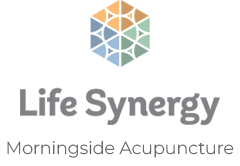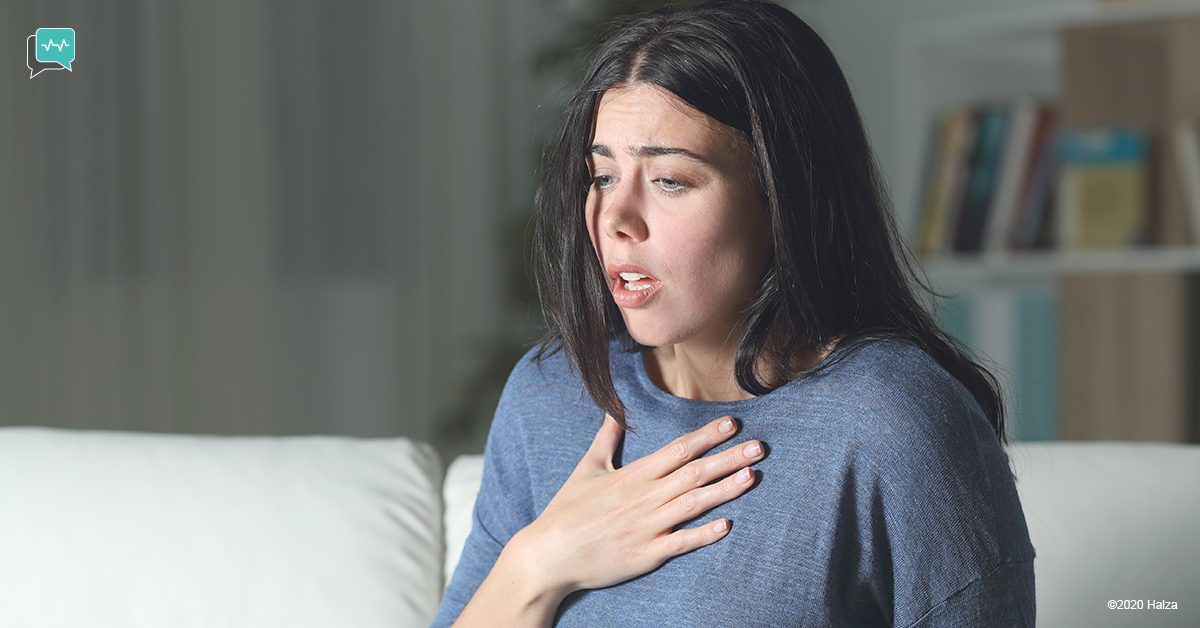The definition of a panic attack is …
“a sudden overwhelming feeling of acute and disabling anxiety”.
And, unfortunately this type of attack is more commonly experienced than you might think, by young and old.
A panic attack is when someone experiences extreme anxiety and physical sensations of fear, such that they’re convinced they are in life-threatening danger.
Symptoms of a panic attack vary and can include:
- uncontrollable shaking or trembling
- shortness of breath or a feeling of choking
- dizziness, weakness and feeling faint
- sweating, sometimes profusely
- increased heart rate or palpitations
- nausea or butterflies in the stomach
- numbness or tingling
- pulsing or ringing in the ears
- burning or itching of the skin
Patients treated here at the clinic with panic attack often describe these attacks as “crippling and scary”. While an individual panic attack usually lasts only a few minutes, some people experience episodes of repeated panic attacks that can last for hours.
The triggers of a panic attack can vary greatly. Some include:
- suffering from long periods of stress
- physical activities such as intense exercise
- alcohol and drug use
- even excessive coffee consumption
- environmental changes such as a new job
- relocation of your home environment
- physical changes after an illness
- separation and divorce (panic attacks can be experienced by adults and children involved)
Reach out for help
The first point to be made is that if you’re suffering from panic attacks and ongoing anxiety, don’t feel embarrassed or ashamed – you are not alone. In this fast-paced, competitive modern world we live in, problems relating from anxiety and stress are reaching epidemic proportions. Life can throw us the odd curve ball from time to time and we all need a helping hand occasionally.
Getting Treated with Acupuncture
If you are interested in treating your anxiety and panic attack symptoms through acupuncture, your first step will be to consult your doctor. It is also important that you receive these services from an AHPRA registered acupuncturist, not someone just practicing dry needling, which is a minor part of an acupuncturist’s scope of practice.
Professional acupuncture practitioners in Australia can be located through websites, including AACMA. The use of acupuncture to treat medical and mental health conditions continues to rise, making it more readily available. Since it has been evaluated for and is available through many hospitals, some insurance policies may cover some of your acupuncture treatments.
Clinical trials examining acupuncture for anxiety has shown some positive results. Isoyama D, et.al, 2012. However, this research has many limitations, including small sample sizes and limited ways to measure outcomes. Acupuncturists and medical professionals are unclear exactly why it helps with anxiety, but research has noted that acupuncture appears to have a calming effect. More rigorous research studies need to be conducted in order to prove the effectiveness of acupuncture for anxiety disorders.
In Traditional Chinese Medicine (TCM), generalized anxiety disorder is understood as a disorder of Shan You Si or anxiety and preoccupation, and is thought to affect the Zang Organs. While the Heart Zang Organ is said to store the Shen or spirit, which includes emotional responses to stimuli, traditional theory also holds that each of the Zang (yin and full) Organs plays a role in the emotions as well. For example, simply stated, the Spleen Zang is associated with excessive worry; the Liver with anger; the Kidney with fear and fright; and the Lung with grief, the inability to let go, and anxiety. When there is a disturbance in one or more of these Zang from any cause, an imbalanced emotional state can occur. Conversely, an imbalanced emotional state can cause a Zang disturbance. In all cases however, the Shen in the H
Traditional Chinese Medicine Categories of Generalized Anxiety Disorder
While a generalized anxiety disorder always affects the Shen (spirit), either primarily or secondarily, TCM classifies the cause of the disorder according to the extent to which individual Zang Organs demonstrate signs and symptoms of disturbance and the extent to which their Qi is affected.
- Heart/Spleen Qi Deficiency: This Pattern of Disharmony manifests as anxiety, preoccupation, obsessive worry, aversion to speaking, palpitations, insomnia, fatigue, poor appetite, abdominal distention, a pale tongue, and weak pulse.
- Lung Qi Deficiency: This Pattern of Disharmony manifests as anxiety, preoccupation, rapidly changing moods, an inability to “let go,” aversion to speaking, shortness of breath, fatigue, sweating easily upon exertion, a weak cough, a pale tongue with a thin white coating, and a thin pulse.
- Liver Qi Stagnation Affecting the Spleen: This Pattern of Disharmony manifests as anxiety, preoccupation, feelings of irritability, moodiness, poor appetite, hypochondriac tightness or pain, muscular tension, fatigue, alternating constipation and loose stools, a pale or dusky tongue with distended sublingual veins, and a wiry-weak pulse.
- Kidney Qi Deficiency: This Pattern of Disharmony manifests as anxiety, preoccupation, feelings of fear and dread, and may be accompanied by lower back and knee weakness, lack of sexual responsiveness, a pale tongue, and a weak pulse.
BACKGROUND
Stress is a normal physical and psychological reaction to demands of life. Most people experience challenges with mental or physical stress on a regular basis. When confronted with stress, the body responds with a burst of hormones to empower the organism to cope and survive – a reaction that is labeled as the “fight-or-flight” response. Once the stress is gone however, the body is supposed to return to a normal relaxed state. Unfortunately, the nonstop stress of modern life often keeps the body in a constantly stressed state. Over time, constantly living in a stressed state coupled with an absence of relaxed states leads to serious health problems.
Fortunately, there are a host of over-the-counter natural remedies for anxiety and stress. It’s important to be prescribed, by your natural healthcare practitioner, reputable and TGA (Therapeutic Goods Administration) and GMP (Good Manufacturing Process) approved formulas. Talk with your registered Doctor of Chinese Medicine to ensure you are receiving the best natural remedies available for your particular condition.
What you can do
Here we explore some lifestyle changes that can have a huge impact on relieving you of these panic attacks.
Deep Breathing exercises are probably one of the best things you can do for some quick relief from anxiety and stress. Panic attacks are often exacerbated by shallow breathing, so turning that around with some mindful deep breathing can make the world of difference. The secret is to breathe deeply and slowly.
Guided Imagery exercises combined with calm breathing, can increase your relaxation response and take you to a deeper state of relaxation. In a quiet space and with closed eyes, you begin visualizing a peaceful, relaxing setting (ie beside a beautiful calm stream or lying on the beach with the warm sun and the sound of soothing waves in the background). Guided Imagery exercises can be particularly successful if you have a good imagination and can visualise well. Otherwise, having a third person guide you through this exercise can be useful. There are recorded Guided Imagery exercises available online and on disc.
Meditation can be a powerful technique which can lead to better health and wellbeing. There are many styles of meditation, eg open eye meditation, chanting meditation, walking meditation, etc. However, the most studied for the purpose of improving mental health is mindfulness meditation. Based partly on Buddhist teachings, mindfulness meditation involves sitting quietly and acknowledging your thoughts as they come into your consciousness and then letting them float away without judgement. That is, the thought is neither good nor bad, it just “is” and then let it float away.
Yoga and Tai Chi, whilst are forms of exercise, are both particularly helpful to relax the body and calm the mind because they combine movement with deep breathing and meditation. There are many different styles of yoga, but they all involve gentle movement, stretching and holding certain poses while breathing deeply.
Controlling negative thought patterns will help you to feel less anxious, uptight, frustrated, disappointed and worried. Having positive thoughts OR having negative thoughts are both habit forming. Our self-talk often dictates our personality, our mood and our behaviour. During a panic attack thoughts such as “I’m not good enough” or “I can’t do this” seem to take control of our mind and affect our physical body. Switching over to positive thought patterns can help alleviate these symptoms, bringing about a welcome sense of calm and relaxation, bringing clarity of mind back.
Making lifestyle changes to bring about a healthy body will
Managing stress before it takes over is the key to a happier, healthier lifestyle. Rest (as you need it) and a good night’s sleep each night will allow you to function better and feel more balanced. Seek help from your healthcare practitioner to achieve regular, good, sound sleep. As well as using some of the mindful breathing techniques mentioned earlier, there are several natural herbal formulas to assist in getting to sleep and staying asleep. Running on empty is never any fun Learning to say “no” is often a useful way to help manage stress levels of those who suffer high anxiety, heavy workloads and crazy busy schedules. It’s a little word that can have a big impact on improving your stress levels.
Left untreated, anxiety and stress can wreak havoc on your mental wellbeing, your physical health
and your life. Suffering from panic attacks, feeling stressed, jumpy, worried, exhausted, frustrated and unsafe is no way to live. The good news is there is much that can be done to help you turn this around and for you to enjoy a fulfilling, happy, balanced, peaceful life.Should you have any queries or need to know more about what to do or where to go to seek help, please be in touch.
Dr Mark McAuliffe (Chinese Medicine Practitioner)
References
1.Errington-Evans, N. 2011, Acupuncture for Anxiety, CNS Neuroscience & Therapeutics 18 (2012) 277–284 https://onlinelibrary.wiley.com/doi/pdf/10.1111/j.1755-5949.2011.00254.x
2. J. Sarris, S. Moylan, D. A. Camfield, et al., “Complementary Medicine, Exercise, Meditation, Diet, and Lifestyle Modification for Anxiety Disorders: A Review of Current Evidence,” Evidence-Based Complementary and Alternative Medicine, vol. 2012, Article ID 809653, 20 pages, 2012. https://doi.org/10.1155/2012/809653.
3. Wolff, E., Gaudlitz, K., von Lindenberger, BL. et al. Eur Arch Psychiatry Clin Neurosci (2011) 261(Suppl 2): 186. https://doi.org/10.1007/s00406-011-0254-y

